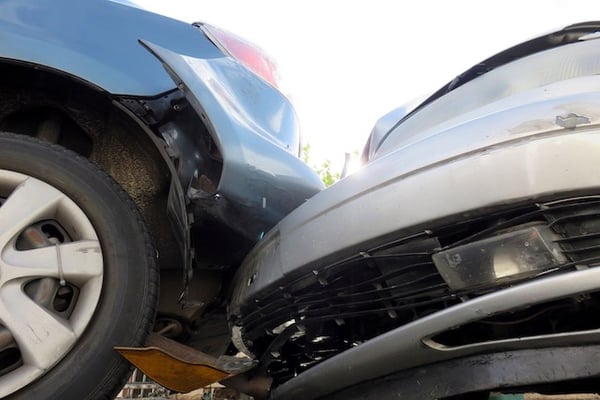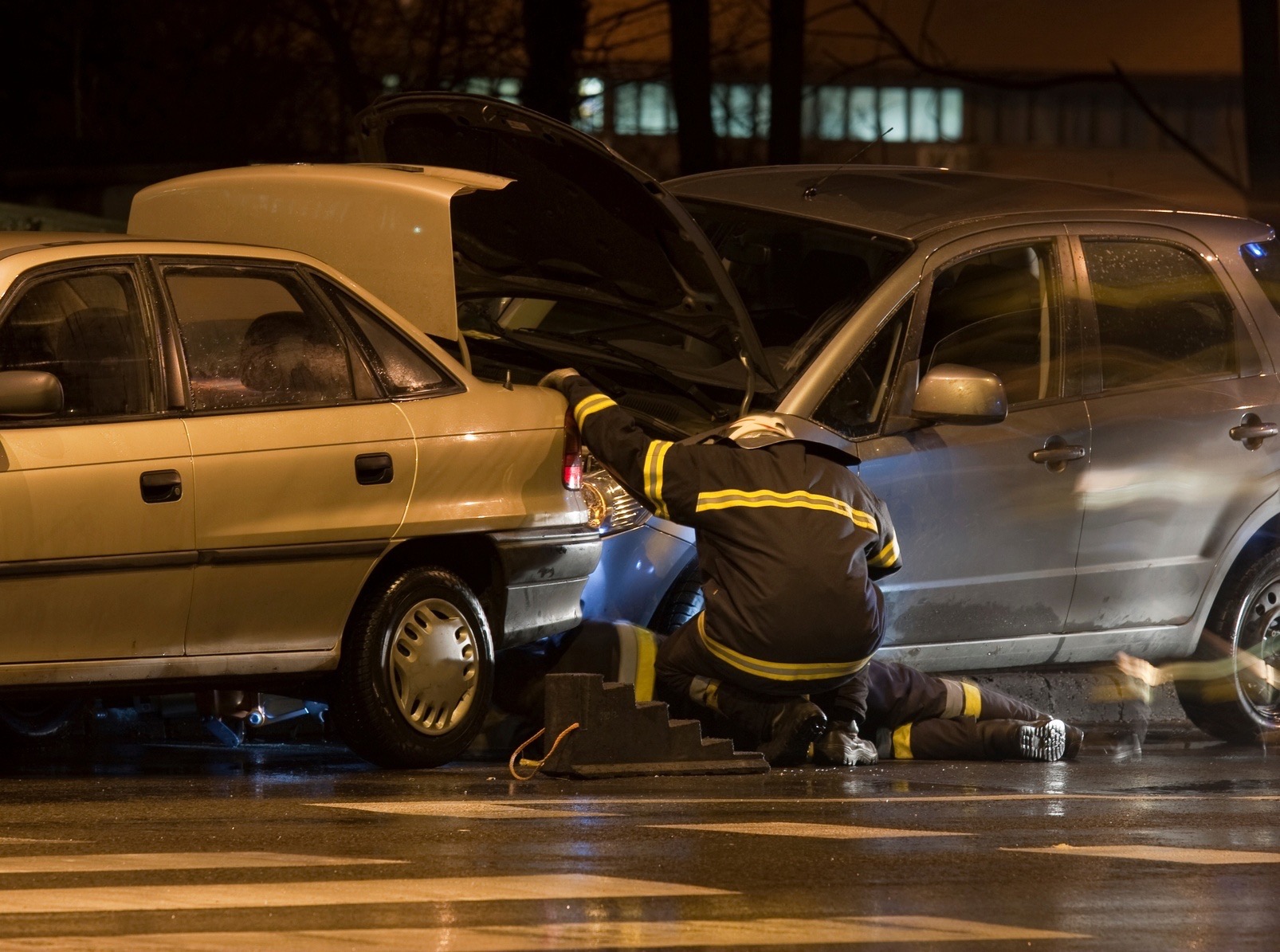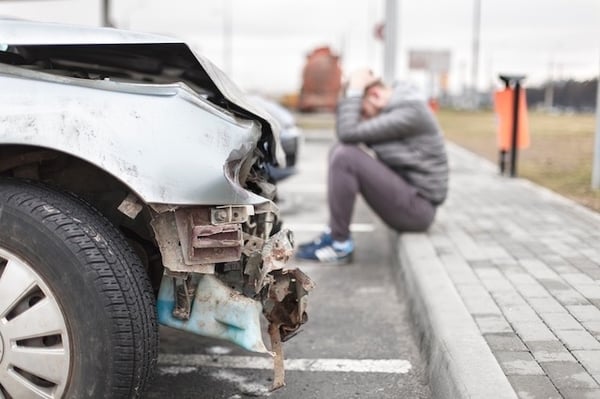If you have children, at one time or another, you have thought, "I can't believe they're so big!"
You never notice how fast time flies until you have children.
First, they're born, then they're walking, then talking, going to school, getting their drivers license, and graduating college.
All of these things happen in what feels like the span of about a week, not decades.
Before you know it, you're watching your grandchildren grow up, and that's when it really feels like time is flying.
Each of those milestones is amazing to watch and has its benefits and drawbacks.
It's incredible to watch your child take his first steps, but then you have to baby proof the house.
It's almost magical when they say their first word, but then you can kiss your peace and quiet goodbye.
And it's great to watch them get their first taste of freedom when they get their drivers license, but that creates so many more things to worry about.
They could get lost, stay out past curfew, go places they shouldn't, the list goes on and on.
Worst of all, they could get in an accident.
After you make sure everyone is okay, you probably wonder if you're responsible for the accident since they're a minor. Do you need a car accident lawyer?
The answer to that question isn't a simple yes or no, and we will discuss it in detail below.
Table Of Contents
- The Theory Of Negligence
- Negligent Entrustment
- The Family Purpose Doctrine
- Additional Considerations
- How To Protect Yourself
- Accidents Can Happen
The Theory Of Negligence
The first thing that happens when it's time to asses fault in a car accident is to decide who the negligent driver was.
The theory of negligence states that a driver must drive reasonably and safely.
If a driver doesn't do this and causes an accident, the negligent driver can be legally liable for any resulting damages.
These damages typically include the following:
- medical bills
- lost wages
- vehicle damages.
The duty to drive safe and reasonable apply to all drivers, including teenagers.
The fact that they are less experienced or perhaps less skilled than other drivers doesn't matter.
They are still held to the same legal standard as everyone else on the road.
In some situations, the parents of the teenagers could be held liable for the damages that resulted from their child's accident.
Deciding and imposing this liability depends on the circumstances of the accident and how it occurred.
Generally, parental liability for the negligence of their teen driver is created in one of two ways.
1. Negligent Entrustment
With negligent entrustment, a parent is held liable when their child causes an accident if the parent knew, or should have known, that their teenager was a danger to other motorists.
For example, let's say your child has limited experience driving on the highway, has been in multiple accidents in under a year, and has been ticketed twice during the same period.
Even still, you let him take the family car on a road trip with his friends across multiple states.
If your child causes an accident, you will potentially be on the hook for any damages that resulted from the accident.
Because you knew of his past actions, negligent entrustment can hold you liable.
2. Family Purpose Doctrine
The family purpose doctrine states that the parent will be held liable for the wrongdoing of their child if the child is acting under the direction of the parent.
In some states, this type of liability can also be referred to as "family use" or vicarious liability.
Under this theory of liability, you as the parent can be held liable for an accident caused by your child if they are doing anything for the family.
This can cover almost anything as long as the parent has control over the teen driver's use of the vehicle.
For example, if you ask your child to run a package to the post office, you could be liable for an accident he or she causes while doing so.
Even if your child goes somewhere else after dropping off the package, you can still be held liable if they cause an accident.

Additional Considerations
A parent can't be held liable for an accident if they don't have legal custody of the child.
Parents generally won't be held liable once their child turns 18, and the vehicle is in the child's name.
Generally, as long as your child is driving legally, and is insured to drive on your policy, it doesn't matter who's liable for the accident from a financial perspective.
This is because your car insurance company pay out damages resulting from an accident.
One of the few exceptions is if your child's wrongdoing is criminal and not negligent.
All policies exclude coverage for any claim resulting from a criminal act.
How To Protect Yourself
Hopefully, you never have to worry about your child being involved in a car accident.
If you haven't had to worry about an accident, here are a few things you can do to help keep it that way:
- Make sure they are ready to drive: Your kid is going to want to hop in the car and drive away as soon as they can. Make sure you take the time to teach them how to drive in a safe location, like an empty parking lot. Make sure they are comfortable behind the wheel before you take them out on the road.
- Make sure they know the rules of the road: Your child will obviously have to pass the drivers test to get their license, but don't rely on only that test to educate them. Take time before and after the test to ride with your child, answer questions, ask questions, and be sure they know the rules of the road before they get complete freedom.
- Don't let them use their phones: Distracted driving is extremely dangerous. You can't stress that point enough to your kid. Do not let them drive while using their phone. And, lead by example. Keep your phone put away while driving.
- Make them responsible for their actions: If your child gets a speeding or other traffic infraction, don't let it slide. Hold them accountable for it, create repercussions for it. Even the smallest act of negligence on the road can take someone's life. If they can't follow the rules, they shouldn't drive.
- Make sure you have adequate insurance: Don't skimp on your insurance. The more coverage you have, the better off you'll be. It's recommended to have up to $1,000,000 in coverage to protect yourself. Spending a couple of hundred dollars more a year can save you the stress of losing everything in an accident.
Accidents Can Happen
Hopefully your child never gets in an accident.
In a perfect world, we could drive anywhere we want without having to worry about getting in an accident.
Unfortunately, the world we live in is far from perfect.
If your child does get in an accident, you could be held liable for any damages that occur.
This article should give you a good idea of when you could be held liable, and what you can do to protect yourself.
If you enjoyed this article, these are worth a look:


